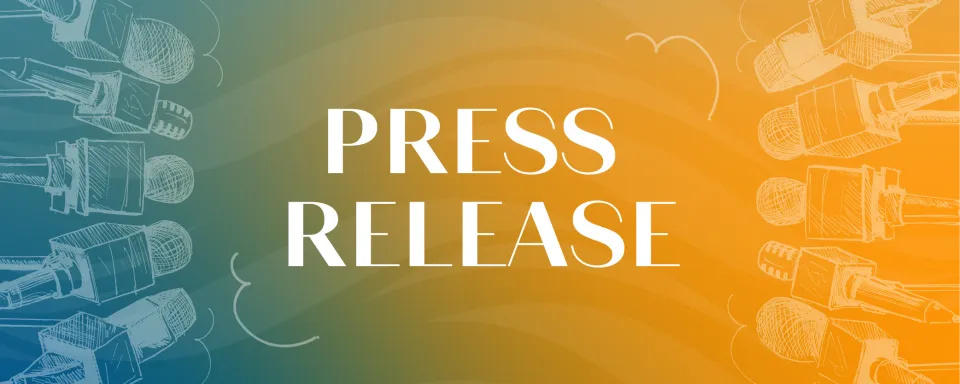- Home
- /
- NWAC demands that federal government provide Indigenous non-profit organizations with stable core funding after being forced to lay off half its staff
FOR IMMEDIATE RELEASE
Published on March 28, 2024

GATINEAU, Que. -- The Native Women’s Association of Canada (NWAC) is demanding that the federal government finally does the right thing by providing stable core funding to Indigenous non-profit organizations across this country.
As a result of the termination of a key government skills-training program and other programs, NWAC has been forced to lay off more than 75 fixed-term and permanent members of its staff – roughly half its workforce.
“It is heart-breaking to lose so many talented and dedicated people,” says NWAC President Carol McBride. “We hope to create additional employment opportunities when this organization secures further work in the service of Indigenous women, girls, Two-Spirit, transgender, and gender-diverse people. But, until that time, our financial hands are tied and we simply do not have the money to sustain our current payroll.”
With the ending of the National Apprenticeship Program (NAP), which was administered by NWAC and other non-profit organizations across the country, along with the ending of other programs, NWAC’s annual revenue dropped from $48 million to $10 million. The annual funding for staffing fell correspondingly, from $11 million to $3 million.
That means the vital work that NWAC is doing on behalf of Indigenous women, in both advocacy and service delivery, will also be scaled back, and the people served by the organization will feel the loss.
NWAC has laboured tirelessly to promote the economic independence of the people it serves through a wide range of programs meant to enhance employability and economic prosperity for First Nations, Inuit and Métis women, Two-Spirit, transgender and gender-diverse people.
It also had policy teams dedicated to improving every facet of Indigenous life in Canada, from health, to justice, to the environment, to ending the genocide that continues to claim a significantly disproportionate number of Indigenous lives.
Administrative fees provided to NWAC through the NAP and the other programs helped to pay for those services. Though many programs will continue, there is no question that the ending of the NAP and the other programs will take a toll.
“This financial roller coaster must be stopped if the government is truly serious about reconciliation with Indigenous people,” says Alma Brooks, NWAC Resiliency Lodge Elder. “When funding is so tenuous, how can any organization be expected to do what both the Truth and Reconciliation Commission and the National Inquiry into Missing and Murdered Women and Girls said is necessary to achieve equality? Why are we constantly being asked to scrape the bottom of the piggy bank?”
Although NWAC relies on federal contracts to subsidise its programming, it has been working diligently to secure other sources of revenue that are independent of government in order to stabilize its workforce and stabilize the organization. It has created a store to sell the artisanal crafts of Indigenous women, which it operates online and at a physical location in its headquarters in Gatineau. It operates a successful café offering and an Indigenous-infused menu. It has dedicated a significant portion of its new headquarters as conference and event space that is rented by outside parties, earning over a million in revenues in the last fiscal year. And it is pursuing other ventures.
“We are not sitting on our hands waiting for the government to provide all of the money we need to do the work that we do,” says Lynne Groulx, NWAC’s Chief Executive Officer. “But, until we can grow our other social businesses, we are forced to rely on the amount we obtain through the piecemeal work provided by government contracts that we have to bid on and win. The well-being of Indigenous people should not hinge on that kind of instability.”
NWAC and other non-profit organizations have been lobbying for decades for secure, stable, core funding. A robust system of audits ensures that any money received is spent wisely.
“The staff cuts that NWAC is currently being forced to make are directly tied to the uncertainties of living hand to mouth. Our workers want stability and job security like most other Canadians, and we deeply regret not being able to give them those things,” says Ms. Groulx. “Without stable core funding, we will repeatedly have to hire and fire staff, repeatedly build and dismantle units, and repeatedly jeopardise the important work that this organization does on behalf of Indigenous women, girls, Two-Spirit, transgender and gender-diverse people.”
-30-
For information, or to arrange an interview, contact:
Gloria Galloway
gloria@gloriagalloway.com
613-447-6648
Pour obtenir plus d’information ou prendre des dispositions pour une interview, contacter:
Gloria Galloway
gloria@gloriagalloway.com
613-447-6648
About The Native Women’s Association of Canada
The Native Women’s Association of Canada (NWAC) is a national Indigenous organization representing political voices of Indigenous women, girls, Two-Spirit, transgender, and gender-diverse people in Canada. NWAC is inclusive of First Nations—on- and off-reserve, status, non-status, and disenfranchised—Inuit, and Métis. An aggregate of Indigenous women’s organizations from across the country, NWAC was founded on a collective goal to enhance, promote, and foster social, economic, cultural, and political well-being of Indigenous women, girls, Two-Spirit, transgender, and gender-diverse people within their respective communities and Canadian societies.
À propos de l'Association des femmes autochtones du Canada
L'Association des femmes autochtones du Canada (AFAC) est une organisation autochtone nationale qui représente la voix politique des femmes, des filles, des transgenres, des bispirituels et des personnes de sexe différent au Canada, y compris les membres des Premières nations vivant dans les réserves et hors réserve, les Indiens inscrits et non inscrits, les personnes privées de leurs droits, les Métis et les Inuits. Regroupant des organisations de femmes autochtones de tout le pays, l'AFAC a été fondée dans le but collectif d'améliorer, de promouvoir et de favoriser le bien-être social, économique, culturel et politique des femmes autochtones au sein de leurs communautés respectives et des sociétés canadiennes.